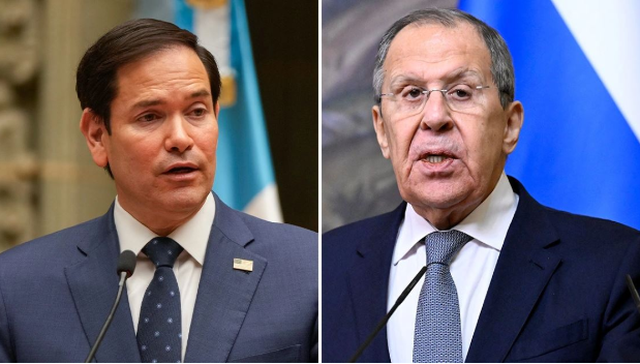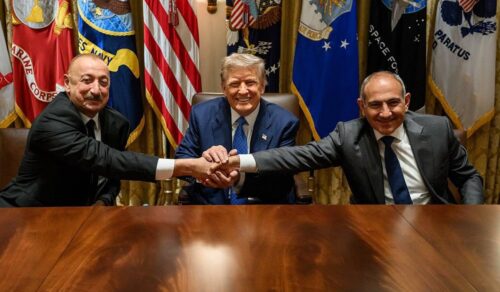
Russian and American delegations present agreements reached in bilateral talks
The Russian and U.S. delegations have outlined the agreements reached and the progress made during negotiations in Riyadh.
Key points from the Russian delegation:
- The negotiators sensed complete determination and a special willingness to actively promote relations between the two countries.
- Moscow agrees with Rubio’s stance that Russia and the U.S. should be guided by national interests.
- Moscow and Washington believe that when their interests do not align, they should try to resolve issues rather than provoke conflicts.
- Both Russia and the U.S. have expressed great interest in resuming consultations on geopolitical issues.
- The parties agreed to ensure the swift appointment of ambassadors in both capitals and to resolve the issue of diplomatic missions’ operations once and for all.
- Russian representatives informed the American delegation that the presence of NATO troops in Ukraine is unacceptable to Moscow, even if they operate under the European Union’s auspices—under foreign or national flags.
- A process for resolving the Ukrainian issue will take shape soon.
- Consultations between Russia and the U.S. on this issue will be held regularly once both sides appoint negotiating teams.
- The Russian side will appoint its representatives after it learns who is included in the American delegation.
- Moscow and Washington agreed on the necessity of removing obstacles to mutually beneficial economic cooperation.
- The U.S. proposed a moratorium on attacks on energy facilities, but the Russian side stated that it has not been targeting civilian energy supply systems, only striking facilities directly serving the Ukrainian armed forces.
- There is a need to “give it to Zelenskyy” for striking the Caspian Pipeline Consortium’s oil transfer station.
- Deputy heads of the Russian Foreign Ministry and the U.S. Department of State will soon agree on a meeting focused on eliminating obstacles to bilateral relations.
Key points from the U.S. delegation:
- Ending the conflict in Ukraine will require a long time and a complex diplomatic effort.
- A resolution can only be achieved with the consent of all parties; the terms must be acceptable to all.
- The cessation of hostilities will require concessions from all sides.
- Donald Trump seeks to end the conflict in Ukraine fairly and prevent its resumption in two to three years.
- Russia and the U.S. have agreed to establish high-level teams tasked with expediting the resolution of the conflict in Ukraine.
- Washington is negotiating with both sides of the Ukrainian conflict, including Kyiv.
- The EU must have a seat at the negotiating table at some point, as it has imposed sanctions on Russia.
- Sanctions against Moscow were a consequence of the Ukrainian conflict, and Washington’s task is to end it.
- Russia is an indispensable player in efforts to resolve the conflict in Ukraine.
- The delegations have not set a date for a bilateral summit involving Trump and Putin.
- The process of restoring the normal operation of diplomatic missions between the two countries could proceed rather quickly; this will mark the next phase of negotiations between Washington and Moscow.
- The U.S. considers it impossible to negotiate with Russia on Ukraine without the normal functioning of diplomatic missions.
- The reopening of consulates in both countries remains an open question.
- Moscow and Washington have agreed that the resolution of the situation must be lasting, stable, and acceptable to all parties.
- The sides plan to continue cooperation to ensure timely and effective progress in the process.
- The Riyadh meeting was an “important step forward” in efforts to end the conflict in Ukraine, but additional steps are required.
- The U.S. considers itself the only party capable of brokering a peace agreement between Russia and Ukraine.


